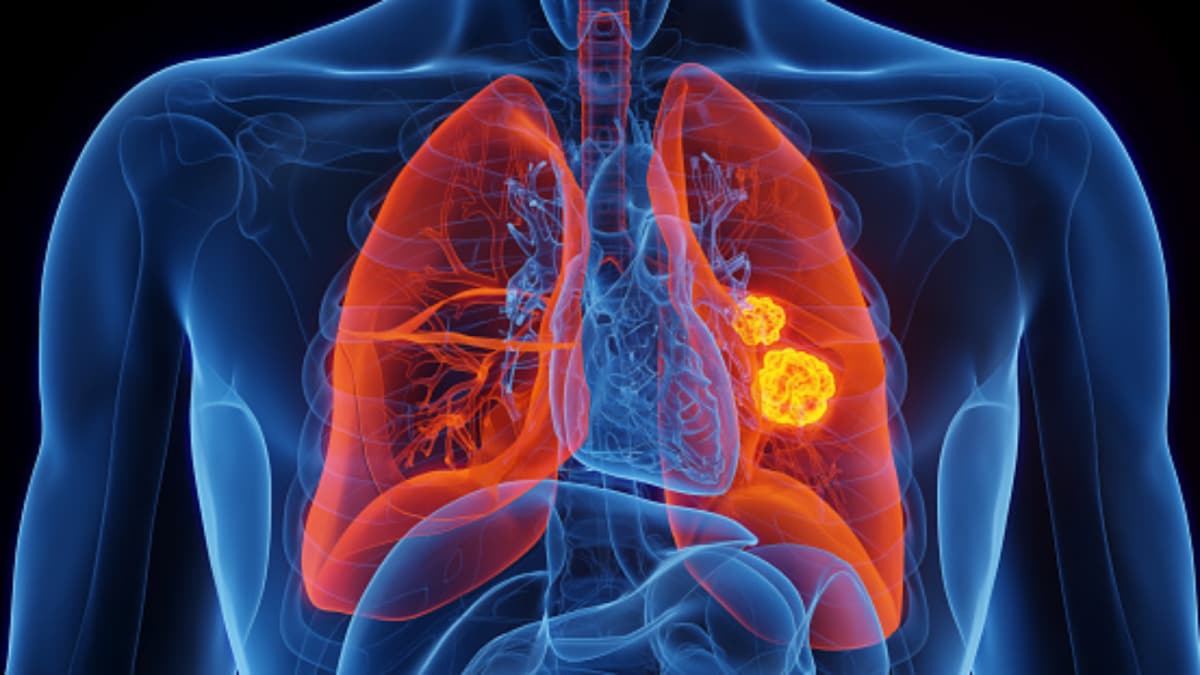Last Updated:
Not just smoking tobacco, lung cancer can also be caused due to a mix of environmental, occupational, and genetic factors.

Environmental and occupational carcinogens contribute to increasing the risk of lung cancer.
When we think of lung cancer, cigarettes are the first culprit that comes to mind. And rightly so, tobacco smoking is responsible for 80–90% of all lung cancer deaths globally. But increasingly, oncologists are seeing a troubling shift.
“Even if you’ve never touched a cigarette, your lungs might still be at risk,” warns Dr. Vinayak Maka, Consultant – Dept. of Medical Oncology, Ramaiah Memorial Hospital, Bengaluru. In India and worldwide, the number of non-smokers being diagnosed with lung cancer is on the rise, driven by a mix of environmental, occupational, and genetic factors.
Invisible Enemies at Home and Beyond
A major but lesser-known threat is radon: a colourless, odourless radioactive gas that can seep into homes from underground. “It’s the second most common cause of lung cancer globally, yet rarely spoken about,” Dr. Maka explains. And outside our homes, ambient air pollution adds to the risk. Tiny particulate matter from traffic, industrial emissions, and biomass burning lodge deep in the lungs, causing chronic inflammation and even DNA damage.
Workplace Hazards We Overlook
Our jobs, too, may expose us to hidden dangers. Asbestos, once widely used in construction and manufacturing, is a known carcinogen. Even decades-old exposure can lead to mesothelioma, an aggressive cancer linked to asbestos. “Many other occupational carcinogens, from arsenic and chromium to radiation exposure, continue to silently increase lung cancer risk,” adds Dr. Maka.
The Role of Genetics and Chronic Conditions
Pre-existing lung diseases like COPD or pulmonary fibrosis can make the lungs more vulnerable to cancerous changes, even without external triggers. “Genetics also play a role,” says Dr. Maka. “Some non-smokers may develop lung cancer due to inherited susceptibility, while some heavy smokers may not. It’s a complex interplay,” he added.
A New Era of Treatment and Hope
The good news? Treatment has evolved significantly. For early-stage cases, surgery – often paired with chemotherapy or radiation – remains effective. But for advanced cases, targeted therapies and immunotherapy are showing life-altering results. “We are moving towards highly personalized treatment, tailored to the unique genetic makeup of each tumor,” says Dr. Maka.
As lung cancer evolves beyond its traditional association with smoking, our collective understanding and vigilance must evolve too. It’s no longer enough to think you’re safe because you don’t smoke. Environmental exposures, hidden occupational risks, genetic predisposition, and even chronic lung issues can all contribute silently over time.
view comments
- Location :
Delhi, India, India
Read More






